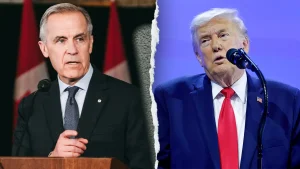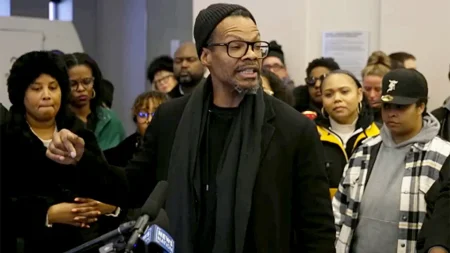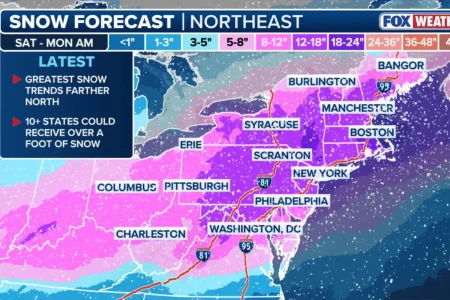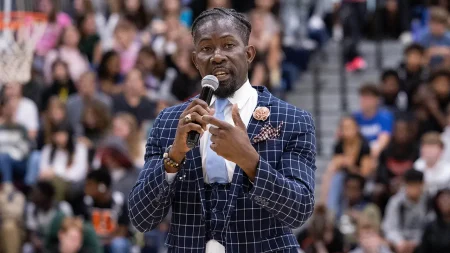Gabon’s Military Takes Power: Constitutional Crisis Unfolds in Central African Nation
Military Leaders Seize Control, Dissolve Key Government Institutions
In a stunning development that has sent shockwaves across Central Africa and the international community, Gabon’s military forces have seized control of the government in what appears to be a full-scale coup d’état. The takeover, which occurred with remarkable swiftness, has resulted in the dissolution of several fundamental pillars of the nation’s democratic system: the Constitutional Court, the National Electoral Commission, and the Senate—effectively dismantling the country’s constitutional framework.
The military’s actions represent the latest in a concerning trend of power transitions through non-democratic means in the region. Military officers, appearing on national television in full uniform and speaking with stern resolve, announced the takeover in the early hours of the morning, citing what they described as “institutional irregularities” and “governance failures” that had allegedly undermined Gabon’s stability and development. “We can no longer allow the destiny of our country to be determined by institutions that have lost both their legitimacy and the nation’s trust,” declared the apparent leader of the military faction, surrounded by fellow officers who nodded in solemn agreement. The broadcast, which interrupted regular programming, indicated that a transitional council would be established to “restore institutional integrity and prepare for a return to democratic governance”—a promise that has become familiar in the lexicon of military interventions across the continent.
Historical Context and Immediate Triggers
Gabon, a nation of approximately 2.3 million people situated on the Atlantic coast of Central Africa, has long maintained relative stability compared to some of its more tumultuous neighbors. The country has been dominated by the Bongo family for more than five decades, with Omar Bongo ruling for 42 years until his death in 2009, after which his son Ali Bongo Ondimba assumed power. This dynastic rule has been characterized by immense oil wealth juxtaposed against stark economic inequality, with critics consistently pointing to corruption, nepotism, and authoritarian tendencies in the government’s approach to governance. The Bongo regime had developed sophisticated mechanisms for maintaining power, including electoral systems that opposition figures and international observers have frequently described as opaque and susceptible to manipulation.
The immediate catalyst for the military’s intervention appears to have been a controversial election, the results of which were contested by opposition parties and viewed with skepticism by international election monitors. The electoral commission—now dissolved by the military—had declared the incumbent victorious amid accusations of vote-rigging, ballot stuffing, and the systematic exclusion of opposition poll watchers from key voting centers. In the days leading up to the military action, tensions had escalated dramatically, with protests erupting in several urban centers and security forces responding with increasing force. “What we witnessed was not an election but a coronation,” said one prominent opposition figure who had called for civil disobedience in the wake of the disputed results. “The military has simply acknowledged what the people already knew: that our institutions have been captured by interests that do not represent the Gabonese public.”
International Response and Regional Implications
The international community has responded to the developments in Gabon with a mixture of condemnation, concern, and calls for restraint. The African Union, which has taken increasingly firm stances against unconstitutional changes of government, immediately convened an emergency session of its Peace and Security Council. “The era when military interventions were accepted as corrective measures in African governance is long past,” stated the chairperson in a strongly-worded declaration that called for an immediate return to constitutional order. Similarly, the United Nations Secretary-General expressed “profound concern” over the situation, emphasizing that “democratic processes and the rule of law must be respected.”
Regional powers have adopted more nuanced positions, reflecting the complex geopolitical realities of Central Africa. France, which maintains significant economic interests in Gabon and has historically exercised considerable influence in its former colony, called for “the protection of civilians and the restoration of democratic institutions,” while stopping short of explicitly demanding the reinstatement of the previous government. China and Russia, both of which have expanded their presence in the resource-rich nation in recent years, urged “stability and dialogue” without directly criticizing the military takeover. Meanwhile, neighboring countries find themselves in a delicate position, aware that political instability in Gabon could have spillover effects on regional security, migration patterns, and economic relationships. “We are monitoring the situation with great attention,” noted the foreign minister of a neighboring state. “The stability of Gabon is integral to the stability of our entire region.”
Economic Uncertainties and Social Impact
Gabon’s economy, heavily dependent on oil exports that account for approximately 80% of its foreign exchange earnings, now faces significant uncertainties as a result of the political upheaval. International markets responded swiftly to the news of the military takeover, with share prices of companies operating in the country experiencing notable declines. The nation’s currency has come under pressure, and economic analysts have expressed concerns about potential disruptions to oil production and export operations. “Political instability creates a risk premium that investors cannot ignore,” explained a senior economist at a major international financial institution. “The question now is whether the military leadership can provide the certainty that economic actors require to maintain their operations in Gabon.”
For ordinary Gabonese citizens, the dissolution of key institutions represents both potential peril and possibility. Many have long expressed frustration with a political system they view as unresponsive to their needs, pointing to inadequate public services, limited economic opportunities, and persistent inequality despite the country’s natural resource wealth. Streets in the capital have seen both celebrations and apprehension, reflecting divided public sentiment about the military’s actions. “We need change, but we need the right kind of change,” remarked a civil society activist who requested anonymity. “Dissolving institutions is easy; building better ones is the challenge.” Healthcare workers, teachers, and other public servants have expressed concerns about the continuity of government functions, while business owners worry about potential disruptions to commerce and supply chains. The coming days and weeks will likely prove critical in determining whether the military’s actions lead to genuine reform or merely another reconfiguration of power among elites.
Pathways Forward: Constitutional Restoration or New Paradigm?
The fundamental question facing Gabon now concerns the pathway back to constitutional governance. Military leaders have promised a “transitional period” followed by new elections, but similar promises in other countries have often led to prolonged military rule or cosmetic changes that preserve underlying power structures. Democracy advocates both within and outside Gabon emphasize that any legitimate transition must include broad civil society participation, transparent processes for institutional reform, and concrete timelines for returning power to civilian authorities. “The dissolution of flawed institutions can only be justified if it leads to the establishment of more democratic, inclusive, and accountable ones,” argued a prominent constitutional scholar familiar with Gabon’s legal framework.
The international community possesses various diplomatic and economic tools to influence the trajectory of events, including targeted sanctions, diplomatic isolation, and conditions attached to development assistance. However, the effectiveness of such measures depends on coordinated action and sustained attention—neither of which is guaranteed in a world grappling with multiple crises. For Gabon itself, the challenge will be navigating between the Scylla of institutional collapse and the Charybdis of authoritarian restoration. Citizens across the social spectrum, from urban professionals to rural farmers, share hopes for governance that responds to their needs while respecting their rights. “We do not need saviors; we need systems,” reflected a university professor in the capital. “Whatever emerges from this moment must be built on the principle that power belongs not to those who seize it, but to those who earn the right to exercise it through the consent of the governed.” As Gabon stands at this critical juncture, the decisions made in the coming months will determine whether the dissolution of its institutions marks the beginning of democratic renewal or simply another chapter in a continuing struggle for genuine popular sovereignty.










